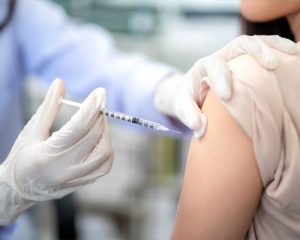 Don’t new parents always care for babies that get a healthy start in their life? One of the very important things in taking care of a child’s health is to have an assurance of keeping in place a standard immunization schedule. This aims to arm you with evidence-based knowledge about your child immunization, disabuse of vaccination myths, and enable you to make better-informed health-care choices.
Don’t new parents always care for babies that get a healthy start in their life? One of the very important things in taking care of a child’s health is to have an assurance of keeping in place a standard immunization schedule. This aims to arm you with evidence-based knowledge about your child immunization, disabuse of vaccination myths, and enable you to make better-informed health-care choices.
Vaccination has therefore been one of the greatest achievements in public health in modern times. Vaccines have been saving children from the infectious diseases that would otherwise cause them serious morbidity and mortality. Vaccines stimulate an individual’s immune system to fight specific infections; however, they also protect community members through community protection by reducing the incidence of these dangerous diseases.
It is very important for new parents in the United States to recognize that the immunization schedule has been developed scientifically and clinically to offer protection to a child during the most vulnerable periods of his life. The schedule changes and is constantly reviewed by experts from centers such as the CDC and the AAP.
Vaccinations offer great benefits to the child and represent benefits for society at large. Some major benefits include:
Vaccination protects children from illnesses that can potentially be fatal, such as measles, mumps, whooping cough, and polio. By vaccinating a child, you are protecting him/her from getting these diseases and from long-term health complications that could occur as the result thereof.
When most of the population is vaccinated against a certain disease, those who cannot be actually vaccinated due to medical conditions gain some protection from herd immunity-the protective barrier that helps prevent outbreaks and also protects the vulnerable populations, including infants, aged people, and immunocompromised individuals.
Intermittent vaccination causes incidences of infectious diseases to decrease. Past records depict how childhood immunization programs have nearly wiped out smallpox and have also markedly decreased the number of cases of other once very common diseases.
Vaccines give immediate protection against infection while giving long-term protection sometimes for years or lifetime against a particular infection. This long-term protection reduces health expenditure and consequently the pressure on healthcare systems.
Protecting one’s child against serious infections can enable the parents to focus on other aspects of parenting without worrying about the occurrence of outbreaks and the adverse consequences on health.
Dispeled by all evidence concerning the safety and efficiency of vaccines, myths trying to persuasively argue might strange a few hesitancy or outright refusal to immunize a child. Now, it is pertinent to answer these myths with solid factual counterarguments.
 It is said by many that childhood vaccines, mainly the MMR vaccine (measles, mumps, and rubella vaccine), lead to autism. Such claims have been rejected by several high-quality studies, which have shown no credible evidence linking vaccines to autism. These false claims trace their roots back to one study that was considered to be flawed and whose findings have not held up under greater scientific scrutiny. Hence, health authorities such as the Centers for Disease Control, the American Academy of Pediatrics, and the World Health Organization have maintained that vaccines are safe from any neurological development perspective.
It is said by many that childhood vaccines, mainly the MMR vaccine (measles, mumps, and rubella vaccine), lead to autism. Such claims have been rejected by several high-quality studies, which have shown no credible evidence linking vaccines to autism. These false claims trace their roots back to one study that was considered to be flawed and whose findings have not held up under greater scientific scrutiny. Hence, health authorities such as the Centers for Disease Control, the American Academy of Pediatrics, and the World Health Organization have maintained that vaccines are safe from any neurological development perspective.
It is sometimes said that natural immunity is more effective than vaccine-induced immunity. However, natural immunity, while appearing strong, carries substantial risks. The actual disease may cause severe illness, complications, and even death. Vaccines for safe and controlled exposure to antigens train the immune system while bypassing a natural infection’s hazards.
It is a widely held view that expressly giving more than one vaccine can overwhelm or weaken one’s immune system. Nothing could be farther from the truth; a child’s immune system can handle being confronted with many antigens at one time. The immunization schedule has been designed very carefully with regard to efficacy and safety. There are facts showing that while the immune system is so capable of handling many more antigens daily than in the vaccination schedule.
Concerns have been raised about the presence of certain ingredients in vaccines. What one must realize is that things in vaccines, e.g., adjuvants and preservatives, are present in minuscule, safe amounts. They are duly regulated by several health authorities and subjected to rigorous testing to ascertain that they do not endanger a child. The benefits of vaccination far outweigh any perceived risk emanating from these compounds.
We will now go even further into the evidence that supports the safety and the role of vaccines that are critical to public health:
Vaccines are subject to extensive research. More importantly, an intensive period of clinical trials ensure that the vaccines tested are safe for use in a particular period. More importantly, the very long process of testing involves thousands of people being enrolled in these various clinical studies before vaccines can truly be considered effective and safe for use. After general use has been implemented, determination and observation of any possible adverse effects become a matter of priority.
Even after approval, vaccines are constantly monitored to ensure that they remain safe for public consumption. Systems such as the Vaccine Adverse Event Reporting System (VAERS) in the USA allow the vaccine safety to be evaluated long-term since millions of children are vaccinated.
Vaccination has facilitated several major health programs that have controlled or eradicated several harmful diseases worldwide. For instance, worldwide eradication of smallpox and reduction of polio cases to nearly insignificant levels bear testimony to the efficiency of vaccination programs. These examples present horse-trading evidence of the critical role vaccines play in preventing diseases.
Major health organizations as well as professional bodies such as CDC, AAP, and WHO all unanimously support vaccination as a safe and necessary measure to protect children’s health. These organizations based ethical recommendations on decades of research and epidemiological studies that confirm time and time again the positive effects and minimal risks of vaccination.
The immunization schedule you follow for your child is carefully created by experts to develop immunity when the child is most vulnerable. Therefore, it minimizes the chance of infectious diseases to occur while ensuring that at no point in time that child’s immune system gets overwhelmed.
When you are about to embark on the journey of parenthood, choosing a vaccination schedule would be one of the many decisions you would have to make for your child’s health and well-being. Some practical steps for a vaccination plan are as follows:
Start by booking a consultation with a pediatrician or a family healthcare provider. They will go over the immunization timetable and address any concerns that are specific to your child’s health needs.
Familiarize yourself with the immunization schedule. Ask about the timing of each series of vaccines and how important given vaccinations really are. Just understanding why the immunization schedule is set as such can free some concerns that build upon myths.
Ask about anything you might have heard that may conflict with child vaccination. A reputable provider of healthcare will give you evidence-based information to clear up any doubts.
Develop a personalized vaccination plan together, taking into consideration your child’s health history and any potential contraindications. This vaccination plan needs to be reviewed and updated as your child grows older, depending on newer recommendations.
Update yourself with sources like CDC, AAP, and the local health department. With knowledge, one can always make the right decisions for ensuring that his/her child remains safe and healthy.
One of the basic steps that can be taken is, having the child immunized with the full series of vaccines in the recommended immunization schedule set forth with a view toward the child’s future protection. Before you go home, here are some final tips for you:
Vaccination is technically supported for many years with the research and real-world evidence. That being said, the few studied or observed risks of vaccines hardly compare with the harms of vaccine-preventable diseases.
Before the next pediatric appointment, it would be advisable to discuss and prepare the vaccination schedule. That plan would become your road map or guiding plan in making sure your child gets proper protection on time.
Every time you encounter lies and misinformation about vaccinations in your community, counter them with truth and conclusive research-based information to make other parents aware.
Work with your child through the immunization program and applaud each milestone. Such recognition places emphasis on the preventive measures you are undertaking to safeguard their futures.
Vaccination represents one among the easiest, most economical, and safest health measures. It claims lives and protects families-so intense is it in keeping communities safe.
In this information-heavy era, decisions must be made on a scientific basis and trustable medical advice. Child vaccination is a backbone of pediatric care that offers critical protection from a variety of potentially detrimental diseases. Vaccine myths, while convincing for some, find very little basis in the volumes of scientific evidence describing their safety and importance.
As new parents in America, you have a chance to lay the first stones in fostering the child’s health by adhering to a well-researched immunization schedule. Making a plan together with your provider, with whom you can address your concerns, and then staying abreast with updates from credible sources are things we encourage you to engage in.
Your child’s future can be safeguarded by taking these steps, which will also help in the welfare of your community. Never forget: a well-vaccinated child is a healthy child, and every vaccine is a step against a disease-infected future.